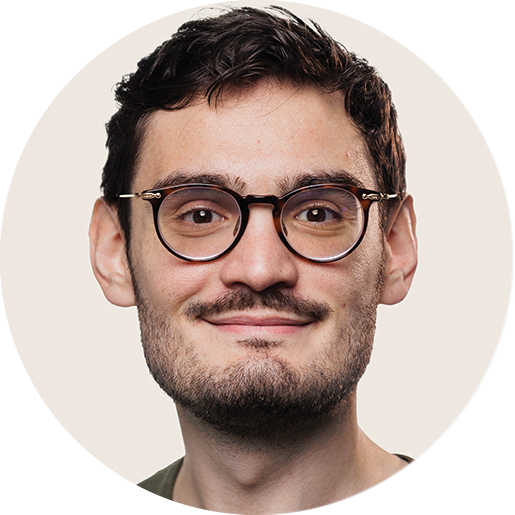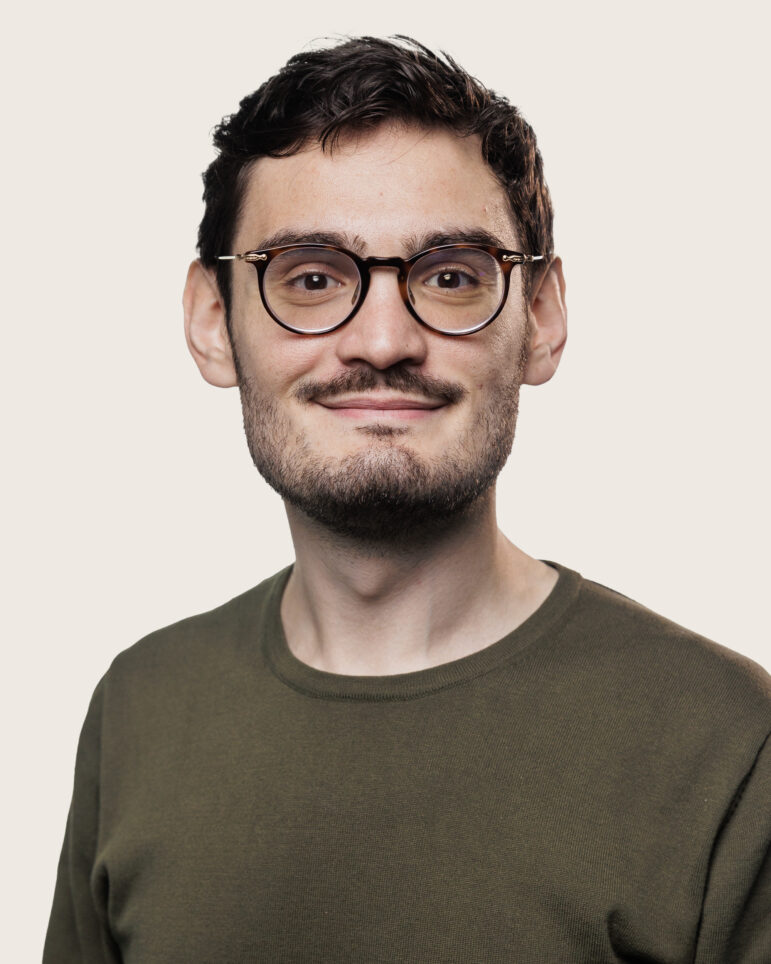Alexander Gonzalez

Senior editor
KQED, San Francisco
Age: 31

In three words: “Thoughtful, experimental, persistent”
What colleagues say: Our decision to promote Alex to a leadership position at KQED has improved our newsroom overall. Alex is the lead editor on our features segment during Morning Edition, a daily seven-minute program that delves deep into the major stories affecting local residents, mainly made up of reporter pieces and interviews.
He is aggressive about responding to breaking news, regularly coordinates with national programs from NPR and Marketplace, and consistently prioritizes the voices of the diverse communities of the Bay Area. He also co-leads our weekly pitch meeting, where we gather editorial feedback to improve our most involved stories. He currently manages a host, an editor and a reporter, with an ever-present eye on supporting, advocating for and improving their work.
What Alex says
Decision to work in public media: While attending college in Miami, my hometown, I commuted to campus every day by car. I wanted to connect with what was going on in my community, so I began tuning in to WLRN. The approach to reporting the news — rooted in “sense of place” — drew me in. I interned at WLRN after graduating from the University of Miami and launched into my public media journey from there. The station helped me hone my journalistic and audio storytelling skills and, beyond that, encouraged me to pursue stories that reflected where we live.
Key accomplishments: Empathy drives my work, especially for the biggest stories, like when I produced a conversation among student journalists attending Marjory Stoneman Douglas High School in Parkland, Fla., which continues to recover from the 2018 mass shooting.
Now living in the Bay Area and working at KQED, I have been thinking about empathy during segments on the latest conflict in the Middle East. In one case, I produced an interview that brought together two friends, a Palestinian pediatrician and a rabbi, to discuss their own friendship and what they’ve learned from each other.
Inspired by: Music, film, television and video games help me think about the choices artists make. Each form has its own structure and vibe, but there’s usually an element that strikes me – like when a song repeats a verse or when a film switches up the chronology. Thinking through these devices helps me as an editor and producer.
Advice for young public media professionals: Make yourself heard. You have as much to offer to an organization as the other way around. Along the way, befriend someone you vibe with. They can support you, and you might end up being friends.
Advice for public media leaders: We have to listen to our audiences, taking their questions and asking for feedback. Our journalism works when we meet people where they are. That could mean coming up with new platforms or new approaches to our stories or creating an internal structure in which everyone — from interns to upper management — gets a seat at the table.
Funniest thing that’s happened on the job: I’m a big fan of David Sedaris, and I got to introduce him on-stage for a KQED-sponsored event in San Francisco. As if the public speaking part wasn’t stressful enough, I didn’t expect that I would get to meet, let alone exchange words with, Sedaris himself backstage. You know what they say about meeting your heroes, but it turned out well. His main feedback was that he was surprised I was only in my 30s!
<< Adriana Gonzalez | See all Rising Stars | Megan Grisolano >>


